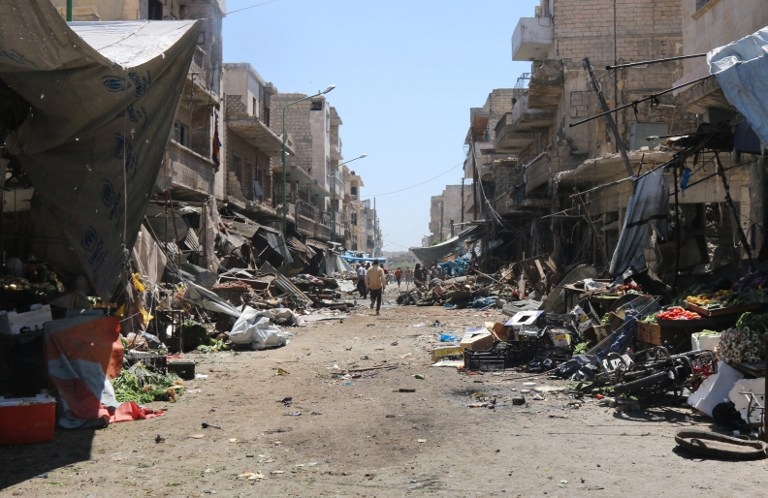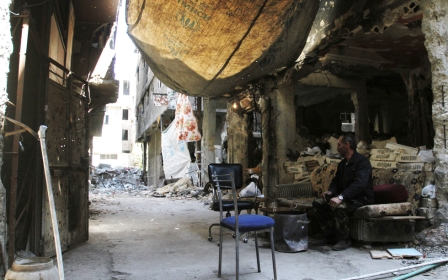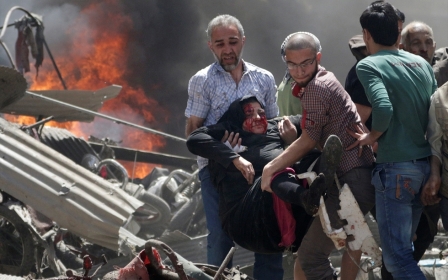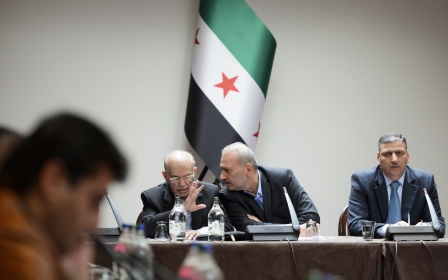Turkish guards 'kill eight Syrians at border' as fighting intensifies

Turkish border guards reportedly killed eight Syrians, including women and children, who were trying to flee the country on a well-worn mountain path between the two countries.
Turkish forces shot at the Syrians, including a man who said on video that he was fleeing both the Islamic State and the Syrian government on Sunday, the Times newspaper has reported.
A member of the group told the Times they had been trying to make the journey into Turkey for several days, but had come under Turkish fire every day before the crossing.
The Turkish government categorically denied the claims. Meanwhile, rights groups say that while Ankara says it has an open door policy for Syrian refugees, the border was essentially closed save for those with life-threatening injuries.
The reports come as both the weeks-long ceasefire in Syria and the UN-led talks between the opposition and government in Geneva have essentially broken down, with government air strikes on Aleppo and Idlib and newly launched rebel offensives in response.
A day after "pausing" their involvement in peace talks to protest against the escalation of violence and continued restrictions on humanitarian access, leaders of the main Syrian opposition group, the High Negotiations Committee (HNC), said they were leaving Geneva after government air strikes killed at least 44 people in two al-Qaeda-held towns in Idlib province on Tuesday.
As talks in Geneva fell apart, a local truce, reached in September, was reportedly enacted on Tuesday, allowing 500 Syrians to leave the besieged towns of Zabadani and Madaya, held by pro-government forces, and Foua and Kefraya, held by Syrian rebels.
In the eastern city of Deir Ezzor, the IS group tightened its noose on an area city where it has besieged an estimated 200,000 people since March 2014.
The group overran al-Sinaa area and advanced on a vital government airbase, with fighting continuing on Tuesday evening at the edge of the airport, according to the Syrian Observatory for Human Rights.
There has been growing concern for the besieged civilian population and, in January, Russia announced that it had equipped Syrian military transport aircraft to carry out aid drops to the city.
On 10 April, the World Food Programme said it had carried out its first ever successful high-altitude airdrop, to deliver 20 tonnes of food aid to government-held neighbourhoods.
The UN has carried out three successful air drops so far but has only reached a small fraction of the population.
Activists, including some in the UK who have started an online petition to encourage the British government to conduct its own aid drops on besieged towns, have questioned why aid agencies can make drops on Deir Ezzor, but not in areas besieged by the Syrian government.
“If aid can be dropped to a town besieged by ISIS, it can be dropped to the many communities being besieged by Assad,” Syria Solidarity UK wrote last week.
New MEE newsletter: Jerusalem Dispatch
Sign up to get the latest insights and analysis on Israel-Palestine, alongside Turkey Unpacked and other MEE newsletters
Middle East Eye delivers independent and unrivalled coverage and analysis of the Middle East, North Africa and beyond. To learn more about republishing this content and the associated fees, please fill out this form. More about MEE can be found here.




